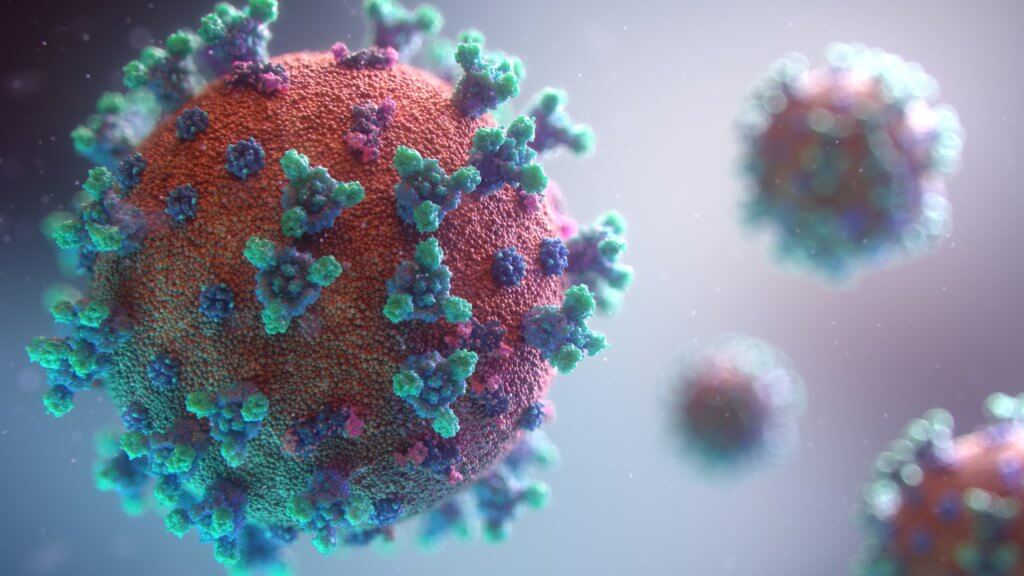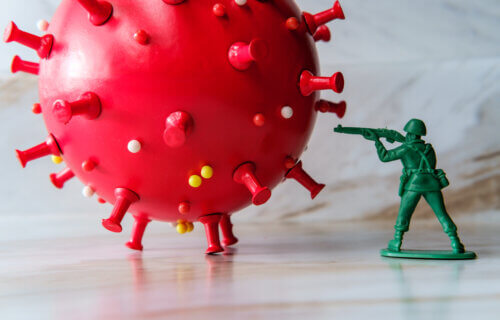SAN FRANCISCO — People who contract COVID-19 but remain asymptomatic may be able to thank a genetic mutation for their protection, a new study reveals. The research provides the first evidence of genes influencing the absence of symptoms. Specifically, study authors focused on a genetic marker called leukocyte antigen (HLA), which signals the immune system when it is under attack.
Scientists reveal that many asymptomatic individuals carry a specific HLA mutation, HLA-B*15:01, which aids virus-killing T cells in recognizing and combating COVID-19.
The University of California-San Francisco suggests that vaccines could be modified to account for the impact of the HLA-B*15:01 variant. This mutation enables certain individuals to detect and respond to the coronavirus, even if they have never encountered it before.
The team believes that their findings could leverage long-term public investment to better protect against future pandemics. According to the UCSF team’s estimate, this relatively common mutation is present in around 10 percent of the population. While the mutation does not prevent the virus from infecting cells, it does prevent symptomatic illness from developing, including symptoms like a runny nose or a mildly sore throat.
The research discovered that 20 percent of asymptomatic participants who tested positive for COVID-19 had at least one copy of the HLA-B*15:01 variant, whereas only nine percent of those who became ill had the mutation. Individuals who carried two copies of the variant were over eight times more likely to remain symptom-free.
“If you have an army that’s able to recognize the enemy early, that’s a huge advantage,” says Professor Jill Hollenbach, a neurologist and epidemiologist at USCF, in a university release. “It’s like having soldiers that are prepared for battle and already know what to look for, and that these are the bad guys.”

Prior to this study, researchers suspected that HLA played a role in determining the presence or absence of COVID-19 symptoms.
The team analyzed a national registry containing HLA data, originally collected for matching bone marrow donors and recipients. They recruited nearly 30,000 bone marrow study participants using the university’s mobile app, the COVID-19 Citizen Science Study, and tracked them throughout the first year of the pandemic.
The final study group was limited to self-identified White individuals due to an insufficient number of respondents from other ethnic and racial groups.
The study identified 1,428 unvaccinated doctors who tested positive for COVID-19 between February 2020 and April 2021, prior to the widespread availability of vaccines. Of this group, 136 remained asymptomatic for at least two weeks before and after testing positive.
HLA-B*15:01 was the only HLA variant that demonstrated a strong correlation with symptom-free COVID-19 cases. Risk factors associated with severe COVID-19, such as age, obesity, and chronic diseases like diabetes, did not appear to affect asymptomatic cases.
Research partners with UCSF from La Trobe University in Australia believe that studying the immune response in these individuals could lead to new ways of promoting immune protection against SARS-CoV-2, which could inform the development of future vaccines or drugs.
“We are proud to partner on research that has the potential to leverage a long-term public investment in building the national registry to help cure diseases and improve our ability to avoid future pandemics,” says Martin Maiers, the vice president of research at the National Marrow Donor Program.
The study is published in the journal Nature.
South West News Service writer Pol Allingham contributed to this report.

